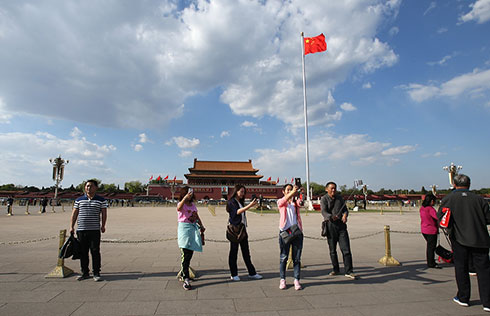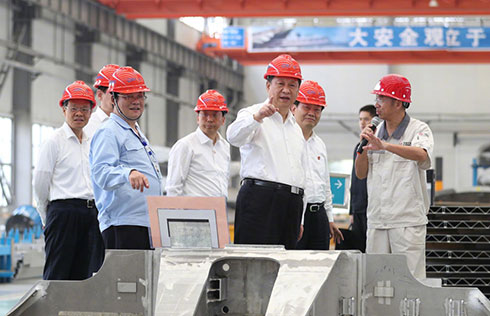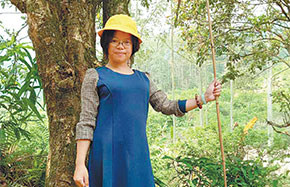Ancient porcelain kiln excavated in Central China
CHANGSHA -- Archaeologists in Central China's Hunan province are excavating a site of a porcelain kiln to make way for a new railway.
The Yanquan kiln, on a hill in Shantian village, Liuyang city, was used between the Southern Song Dynasty (1127 - 1279) and the Yuan Dynasty (1271 - 1368), said Xun Chunlin, curator of the Liuyang city museum on Monday.
Archaeologists have found a kiln workshop, a pit for storage of the clay used in porcelain making, two channels and three walls. They have unearthed porcelain utensils, mostly greenish white, and tools used in the kiln.
"Although it was an unofficial kiln, the excavation helps us learn more about life of people in the Song and Yuan dynasties," Xun told Xinhua.
"It also demonstrates the spread of porcelain making from East China to Hunan," he said.
The kiln, discovered in 1984, is on the route of a railway linking Inner Mongolia and Jiangxi Province, intended to be a major coal transportation line, stretching more than 1,800 kilometers and scheduled to begin operations in 2020.
The relics unearthed will be kept in the museum.
- China considers draft law revision to standardization law
- Population of Xinjiang's endangered amphibian stops declining
- China's Long March-5 Y2 carrier rocket leaves for launch site
- China's draft law highlights information security, national territory awareness
- Former senior civil affairs official demoted for dereliction of duty



















